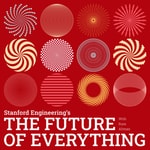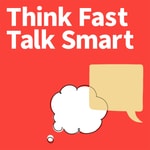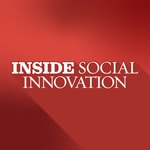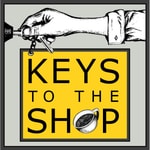The Future of Everything – Details, episodes & analysis
Podcast details
Technical and general information from the podcast's RSS feed.

The Future of Everything
Stanford Engineering
Frequency: 1 episode/9d. Total Eps: 334

Recent rankings
Latest chart positions across Apple Podcasts and Spotify rankings.
Apple Podcasts
🇺🇸 USA - science
02/08/2025#78🇺🇸 USA - science
01/08/2025#70🇺🇸 USA - science
31/07/2025#80🇺🇸 USA - science
30/07/2025#87🇺🇸 USA - science
29/07/2025#74🇺🇸 USA - science
28/07/2025#85🇺🇸 USA - science
27/07/2025#75🇺🇸 USA - science
26/07/2025#70🇺🇸 USA - science
25/07/2025#75🇺🇸 USA - science
24/07/2025#75
Spotify
No recent rankings available
Shared links between episodes and podcasts
Links found in episode descriptions and other podcasts that share them.
See all- https://twitter.com/stanfordENG
406 shares
- https://twitter.com/rbaltman
54 shares
RSS feed quality and score
Technical evaluation of the podcast's RSS feed quality and structure.
See allScore global : 69%
Publication history
Monthly episode publishing history over the past years.
Best of: Better ways to build an airplane
0vendredi 30 août 2024 • Duration 26:28
We want to wish our listeners in the states a happy Labor Day weekend. We hope, wherever you are, you’re taking some time to savor the last bit of summer. After a couple months full of travel and news about the airplane industry, we can’t help wondering — are there better ways to build airplanes? Our previous guest, Ilan Kroo, an expert in aeronautics, discusses how recent developments in fuels, engines, materials, and computer controls are leading to a new era of airplanes. We hope you’ll tune in and learn something new.
Have a question for Russ? Send it our way in writing or via voice memo, and it might be featured on an upcoming episode. Please introduce yourself, let us know where you're listening from, and share your quest. You can send questions to thefutureofeverything@stanford.edu.
Episode Reference Links:
- Stanford Profile: Ilan Kroo
Connect With Us:
- Episode Transcripts >>> The Future of Everything Website
- Connect with Russ >>> Threads / Bluesky / Mastodon
- Connect with School of Engineering >>> Twitter/X / Instagram / LinkedIn / Facebook
Chapters:
(00:00:00) Introduction
Host Russ Altman introduces guest Ilan Kroo, a professor of aeronautics and astronautics at Stanford University.
(00:01:33) The Future of Airplane Design
The technological advancements that are enabling new types of aircraft designs.
(00:03:52) Designing Airplanes with Active Control
Active control systems and their impact on airplane safety and efficiency.
(00:05:03) Personal Flying Vehicles
eVTOL vehicles as a promising future technology for personalized and commercial travel.
(00:06:54) Scaling eVTOL and Air Traffic Control
How companies and regulatory bodies are preparing for the rise of eVTOL vehicles.
(00:10:21) Sustainable Aviation
New engine concepts, composite materials, and sustainable fuels in commercial aviation.
(00:16:42) Hydrogen-Powered Aircraft
Hydrogen's potential as a sustainable fuel source and its impact on airplane design.
(00:19:44) Climate Modelling in Airplane Design
The intersection of climate science and airplane design for a more sustainable future.
(00:22:04) Unconventional Airplane Designs
New designs that may become the future of aviation, with benefits in sustainability and performance.
(00:25:55) Conclusion
Connect With Us:
Episode Transcripts >>> The Future of Everything Website
Connect with Russ >>> Threads / Bluesky / Mastodon
Connect with School of Engineering >>>Twitter/X / Instagram / LinkedIn / Facebook
The future of Russia and Ukraine
Episode 257
vendredi 23 août 2024 • Duration 32:21
Political scientist Kathryn Stoner is the Director of the Center on Democracy, Development and the Rule of Law (CDDRL) at Stanford and an authority on Russian/Ukrainian politics. She says views on the current war depend on which side someone is on: Many Russians and their leader Vladimir Putin say Ukrainians are Russians and have been since the 10th century. Ukrainians strongly disagree, likening the two nations to the U.S. and Great Britain. How the present conflict is resolved has important implications for other former Soviet states and the future of the European Union, as Stoner tells host Russ Altman on this episode of Stanford Engineering’s The Future of Everything podcast.
Have a question for Russ? Send it our way in writing or via voice memo, and it might be featured on an upcoming episode. Please introduce yourself, let us know where you're listening from, and share your quest. You can send questions to thefutureofeverything@stanford.edu.
Episode Reference Links:
- Stanford CDDRL Profile: Kathryn Stoner
Connect With Us:
- Episode Transcripts >>> The Future of Everything Website
- Connect with Russ >>> Threads / Bluesky / Mastodon
- Connect with School of Engineering >>> Twitter/X / Instagram / LinkedIn / Facebook
Chapters:
(00:00:00) Introduction
Host Russ Altman introduces guest Kathryn Stoner, director of the Center on Democracy, Development, and the Rule of Law at Stanford University.
(00:02:09) Historical Context of the Russia-Ukraine Conflict
How historical narratives shape perspectives on the Russia-Ukraine conflict.
(00:05:38) U.S. and International Perspectives
The strategic implications of the Russia-Ukraine conflict for the United States and its historical agreements.
(00:08:49) The Domino Effect and Regional Risks
The potential risks to other former Soviet republics and the concept of the domino effect.
(00:12:43) Democracy in the Post-Soviet States
Analysis of the state of democracy in Ukraine, Georgia, and other former Soviet republics
(00:18:59) The Unexpected Stalemate
Why the Russia-Ukraine war has not gone as expected and the strategic missteps by Russia.
(00:22:39) Domestic Impact in Russia
The impact of the war on Russian public opinion and why Russians are not openly protesting against it.
(00:28:46) Hope for the Future
Potential sources of optimism for the future of Russia and its younger generation.
(00:31:40) Conclusion
Connect With Us:
Episode Transcripts >>> The Future of Everything Website
Connect with Russ >>> Threads / Bluesky / Mastodon
Connect with School of Engineering >>>Twitter/X / Instagram / LinkedIn / Facebook
Best of: The future of proteins
0vendredi 21 juin 2024 • Duration 31:17
We’re digging back into our archives with an episode with bioengineer Polly Fordyce. Polly studies the form and function of proteins. She refers to proteins as the “workhorses” that make things in the body happen, and her study of these molecules reveals a greater understanding of human life. We hope you’ll tune in to this conversation again, and enjoy.
Episode Reference Links:
- Stanford Profile: Polly Fordyce
- Polly’s Lab: The Fordyce Lab
Connect With Us:
- Episode Transcripts >>> The Future of Everything Website
- Connect with Russ >>> Threads / Bluesky / Mastodon
- Connect with School of Engineering >>> Twitter/X / Instagram / LinkedIn / Facebook
Chapters:
(00:00:00) Introduction
Host Russ Altman introduces guest Polly Fordyce, a professor of bioengineering and genetics at Stanford University.
(00:01:51) What are Proteins?
The basics of proteins and their crucial roles in the body.
(00:05:01) Protein Structure and Function
The relationship between protein structure and function.
(00:07:07) Innovations in Protein Research
The high-throughput technologies used in the lab to study protein functions.
(00:09:44) Mutant Proteins and Functional Variants
How mutations in proteins affect their function and structure, using the example of the protein PafA.
(00:14:24) The Impact of Protein Research on Medicine
Insight into how protein mutations can aid in developing targeted therapies.
(00:17:37) Proteins and DNA Interaction
The role of proteins in reading DNA and regulating gene expression.
(00:21:41) Transcription Factors and DNA Binding
The relationship between transcription factors and specific DNA sequences.
(00:25:36) Mechanisms of Transcription Activation
The process of transcription activation and the role of co-activators and RNA polymerase.
(00:28:15) Future Directions in Protein Research
The future of protein research, including making advanced research tools more accessible.
(00:30:36) Conclusion
Connect With Us:
Episode Transcripts >>> The Future of Everything Website
Connect with Russ >>> Threads / Bluesky / Mastodon
Connect with School of Engineering >>>Twitter/X / Instagram / LinkedIn / Facebook
Computational modeling can help understand Alzheimer’s disease
Episode 184
mardi 14 juin 2022 • Duration 27:19
Physicians diagnose Alzheimer’s disease with tests that measure memory loss and behavioral change. But many years before these symptoms appear, the disease is changing the brain, leading to the buildup of misfolded proteins and brain shrinkage that cause cognitive decline. In this episode of Stanford Engineering’s The Future of Everything, Stanford mechanical engineer Ellen Kuhl explains how she’s using databases of brain images of both Alzheimer’s patients and healthy individuals to create computational models that show how the disease spreads through distinct parts of the brain and gradually impacts different brain functions. Kuhl and host, Stanford bioengineer Russ Altman, explore how these models have generated new insights into how Alzheimer’s affects the brain, as well as its diagnosis and its potential treatment. Listen and subscribe here.
Connect With Us:
Episode Transcripts >>> The Future of Everything Website
Connect with Russ >>> Threads / Bluesky / Mastodon
Connect with School of Engineering >>>Twitter/X / Instagram / LinkedIn / Facebook
Data is transforming our understanding of natural disasters
Episode 185
mardi 14 juin 2022 • Duration 27:20
Humans have been trying to predict when earthquakes will happen for centuries, with little success, by developing earthquake detectors and by wondering if unusual animal behavior could be a sign of an incoming temblor. In this episode of Stanford Engineering’s The Future of Everything, Eric Dunham, a geophysicist at Stanford University, explains that while we’re still unable to predict when earthquakes will happen, advanced computers and new sensors on the seafloor are pushing the field of natural-hazard modelling forward and providing new information about the nature of earthquakes, tsunamis, and volcanoes. Dunham and host, bioengineer Russ Altman, discuss how this modeling could help us understand where large earthquakes and tsunamis are likely to happen – and how it could help us prepare for these potentially devastating events. Listen and subscribe here.
Connect With Us:
Episode Transcripts >>> The Future of Everything Website
Connect with Russ >>> Threads / Bluesky / Mastodon
Connect with School of Engineering >>>Twitter/X / Instagram / LinkedIn / Facebook
How to develop ever better computer chips
Episode 183
mercredi 25 mai 2022 • Duration 27:00
Computer chips are everywhere: your cellphone, your car, even your refrigerator. And they’re essential to enabling advances in artificial intelligence, autonomous vehicles, and faster and better computers -- and to solving global challenges such as climate change. The omnipresence of this foundational technology has been growing for decades, but the pandemic accelerated the digital transformation of society, significantly increasing the demand for more and better chips.
In this episode of Stanford Engineering’s The Future of Everything, Stanford electrical engineer Philip Wong and host, bioengineer Russ Altman, discuss why filling that need will require a greater emphasis on semiconductor research in universities, global cooperation, and increased investment in both research and development (R&D) and manufacturing. They also discuss the importance of shortening the distance between the kind of computer chip innovations happening in university labs and the fabrication of the next generation of chips, or what Wong calls “the lab-to-fab gap.” Listen and subscribe here.
Connect With Us:
Episode Transcripts >>> The Future of Everything Website
Connect with Russ >>> Threads / Bluesky / Mastodon
Connect with School of Engineering >>>Twitter/X / Instagram / LinkedIn / Facebook
Training the next generation of entrepreneurs
Episode 182
mercredi 25 mai 2022 • Duration 27:24
Search online and you’ll find lists of all the skills entrepreneurs should have - among them are imagination, creativity, innovation, entrepreneurship. But are entrepreneurs born with these relevant skills, or can they be taught?
In this episode of Stanford Engineering’s The Future of Everything, Tina Seelig, professor of the practice in the Department of Management Science and Engineering at Stanford, explains the differences between imagination, creativity, innovation and entrepreneurship, and how all four can be taught and then applied to finding solutions to big challenges. Join Seelig and host, bioengineer Russ Altman, as they discuss how to train a generation of entrepreneurs who will make positive contributions to the world. Listen and subscribe here.
Connect With Us:
Episode Transcripts >>> The Future of Everything Website
Connect with Russ >>> Threads / Bluesky / Mastodon
Connect with School of Engineering >>>Twitter/X / Instagram / LinkedIn / Facebook
How to Fight Climate Change
Episode 181
mardi 17 mai 2022 • Duration 27:32
The consequences of climate change have already been devastating: wildfires, drought, coastal flooding, and increased temperatures, among them. And there are massive economic, societal, and geopolitical and security costs as well. It's no wonder that many people may feel the situation at this point is hopeless. But in this episode of the Future of Everything, Stanford’s Chris Field tells host and bioengineer Russ Altman that the world has made more progress than we might have expected a decade ago, and that we can still pave a way to a sustainable future, both by reducing emissions and by adapting to the impact of increasing temperatures through such things as technological innovation and improved infrastructure and land and resource management. Listen and subscribe here.
Connect With Us:
Episode Transcripts >>> The Future of Everything Website
Connect with Russ >>> Threads / Bluesky / Mastodon
Connect with School of Engineering >>>Twitter/X / Instagram / LinkedIn / Facebook
The physics of gel-like substances
Episode 180
jeudi 5 mai 2022 • Duration 27:34
The vast majority of substances are neither liquid, solid, nor gas – but an alternative form that shares characteristics of liquids and gases. Among them are gels, glasses, and colloidal suspensions, and they’re an essential part of everyday products like toothpaste, paint, hair products, and even windows. Stanford chemical engineer Roseanna Zia is an expert on the gel-like substance known as colloids.
In this episode of Stanford Engineering's The Future of Everything, Zia joins host Russ Altman to talk about the physics of these substances, and how a greater understanding of colloids can improve our understanding of cells, biological processes, and human health and disease. Listen and subscribe here.
Connect With Us:
Episode Transcripts >>> The Future of Everything Website
Connect with Russ >>> Threads / Bluesky / Mastodon
Connect with School of Engineering >>>Twitter/X / Instagram / LinkedIn / Facebook
What makes a surgeon great?
Episode 178
vendredi 15 avril 2022 • Duration 27:26
Conducting a surgery is one of the most complex tasks an individual can do — but how do you recognize the difference between the highly skilled surgeons performing at the top of their game and those still honing their techniques? With the help of wearable sensors, motion tracking and video, physicians can now watch surgeons in action, quantify their movements, and determine how highly skilled physicians accomplish the unique choreography of surgery.
In this episode of Stanford Engineering’s The Future of Everything, Carla Pugh, a professor of surgery at Stanford, discusses what we learn when we measure physicians’ movements, and how studying the movements of skilled surgeons can shorten the learning curve for their less experienced colleagues. Dr. Pugh joins bioengineer and host Russ Altman to explore the future of surgery. Listen and subscribe here.
Connect With Us:
Episode Transcripts >>> The Future of Everything Website
Connect with Russ >>> Threads / Bluesky / Mastodon
Connect with School of Engineering >>>Twitter/X / Instagram / LinkedIn / Facebook









